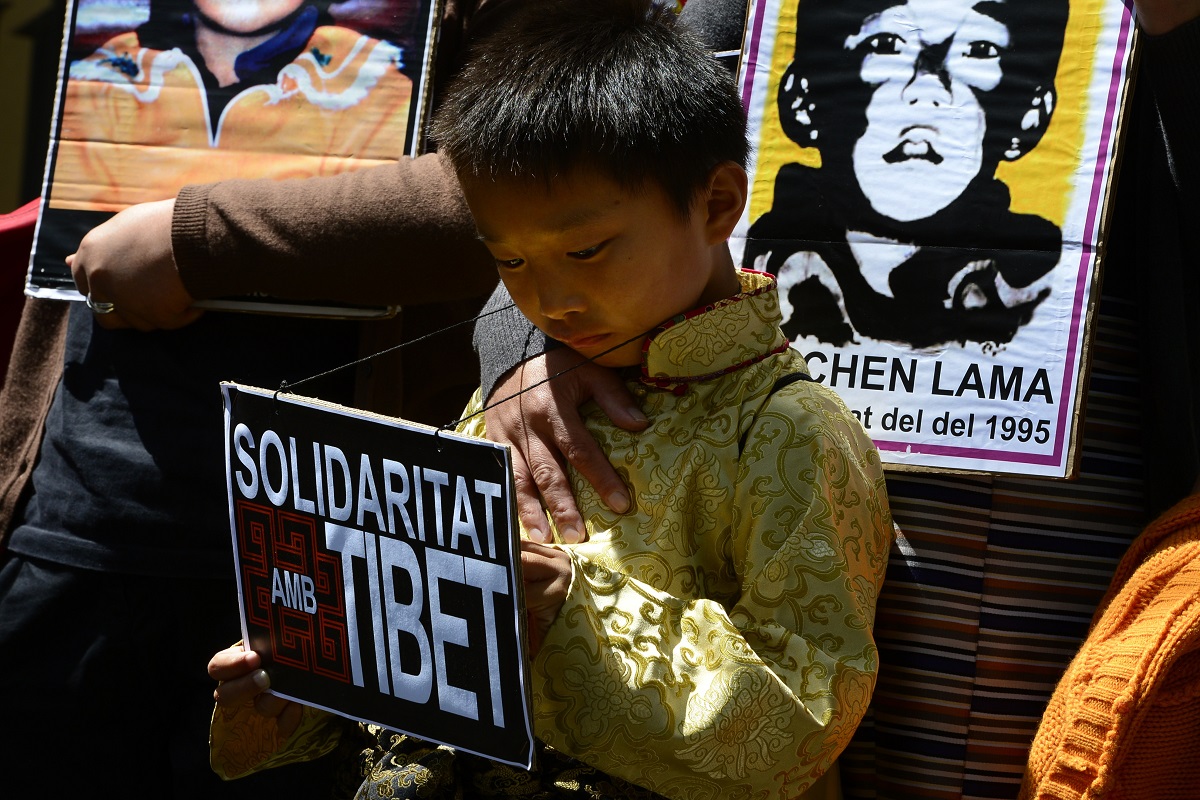India must shore up ties with Dhaka
India’s rapport with Bangladesh has plummeted to unprecedented depths, with Bangladesh’s Chief Advisor Muhammad Yunus’ latest sojourn in China poised to further exacerbate the anti-India sentiment.
In 1995, a young Tibetan boy Gedhun Choekyi Nyima was recognised as the 11th Panchen Lama, the second highest spiritual authority in Tibetan Buddhism after Dalai Lama. Days later Nyima had disappeared.
SNS | New Delhi | May 15, 2020 12:31 pm

China's officially atheist government has made clear it could seek to name a successor to the 84-year-old Dalai Lama, evidently hoping that the global movement for Tibetan autonomy will wither away without the charismatic monk. (Photo: AFP)
The United States once again called on China to free Panchen Lama, whom the Tibetans identified as second highest spiritual authority and warned Beijing not to see the episode as a model for handling the Dalai Lama’s succession, on Thursday. He was taken into captivity at the age of six by Chinese authorities.
In 1995, a young Tibetan boy Gedhun Choekyi Nyima was recognised as the 11th Panchen Lama, the second highest spiritual authority in Tibetan Buddhism after Dalai Lama. Days later Nyima had disappeared.
Advertisement
The boy was taken into custody three days later and has not been seen since, with human rights groups calling him the world’s youngest political prisoner.
Advertisement
“We do not have any idea of the whereabouts, and yes, we continue to press the Chinese authorities to release the Panchen Lama and to let him free, and let the world know where he is,” said Ambassador-at-Large for International Religious Freedom Sam Brownback during a conference call with reporters on Thursday.
“This takes on, I think, an increased interest and focus and importance as the Chinese Communist Party continues to assert their right to appoint the next Dalai Lama,” he further added.
“They don’t have the right to appoint the next Dalai Lama any more than they (have) the right to appoint the next pope.”
Meanwhile, the United States Commission on International Religious Freedom (USCIRF), in a statement, reiterated its call for the State Department to fill the vacancy for the Special Coordinator for Tibetan Issues.
The appointment of the Special Coordinator for Tibetan Issues is mandated by the Tibetan Policy Act of 2002, however this position has been vacant since January 20, 2017.
Previous Special Coordinators have been crucial to raising the profile of religious freedom issues in Tibet and mobilising government resources to address the issue, it said.
The Chinese Communist Party is attempting to erase the unique identity of Tibetan Buddhism, noted USCIRF Commissioner Gary Bauer.
We need to utilise all of the policy tools available, including the position of Special Coordinator for Tibetan Issues, to confront this grave threat to religious freedom, he said.
China’s officially atheist government has made clear it could seek to name a successor to the 84-year-old Dalai Lama, evidently hoping that the global movement for Tibetan autonomy will wither away without the charismatic monk.
The 14th Dalai Lama, who has cut back on a hectic travel schedule but is not known to have serious health issues, has mused about breaking tradition to scuttle Beijing’s plans.
He has spoken of appointing his own successor — perhaps a girl — while he is still alive or declaring the institution finished with him.
China appointed its own Panchen Lama, who has made a number of tightly scripted public appearances, even though many Tibetans do not recognize him.
In a rare statement on the Dalai Lama-appointed Panchen Lama, a pro-Beijing official in Tibet said in 2015 that the young man was healthy, enjoying an education and “does not want to be disturbed.”
Advertisement
India’s rapport with Bangladesh has plummeted to unprecedented depths, with Bangladesh’s Chief Advisor Muhammad Yunus’ latest sojourn in China poised to further exacerbate the anti-India sentiment.
The legal and ethical debate surrounding the US administration’s policy of deporting certain Venezuelan migrants to a high-security prison in El Salvador has intensified following an appeals court decision upholding an injunction against the practice.
US President Donald Trump has hit out at "fake news media" and the "radical left" for allegedly conducting a biased coverage of messages leaked from a Signal group chat, where US officials had discussed strikes on Iran-backed Houthi targets in Yemen.
Advertisement
